- Home
- Linda Castillo
Among the Wicked Page 10
Among the Wicked Read online
Page 10
“Just set it up there with the rest.” The older woman looks past me. “I believe Bishop Schrock is about to begin, so we’d best get in there.”
By the time we enter the main part of the barn, the last of the unmarried men and teenage boys are coming through the door single file and making use of the benches in the back. As is usually the case, the women are seated on one side of the aisle, the men on the other.
The smell of kerosene from a large space heater mingles with the aromas of woodsmoke, the food in the back room and the lingering scents of hay and sweet feed and horses. I haven’t attended a preaching service in years, but already I feel the anticipation of that first hymn building inside me.
It’s a reverent moment and, though I don’t know any of the people around me, a shared kinship. In unison, the men remove their hats, placing them beneath the bench upon which they’re sitting. I don’t feel like a cop as I take my place on the bench with the rest of the single women and visitors at the rear of the room. I’m young and Amish and the words to the first hymn venture from the recesses of my memory.
Mer misse glawe an sell was unser Harr un unser.
Heiland Jesu Christi uns g’sagty hot.
Ja, sell hot er g’sagt. Ja ich glab, sell is recht.
We must believe in that which our Lord and our
Savior Jesus Christ told us.
Yes, that’s what He said. Yes, I believe that is right.
The hymn is followed by a period of silence. I should be observing those around me. Taking an inventory of the number and ages of the children present. Scrutinizing those children for signs of abuse. Instead, I close my eyes and the old prayer from Die Ernsthafte Christenpflicht—The Prayer Book for Earnest Christians—pries into a brain that doesn’t necessarily welcome it.
O God and Father of all light and comfort …
The words come back to me with astounding clarity and ease. When you’re Amish, some things are so entrenched, become such a sacred and immovable part of your life, that you can’t escape them. Worship is one of those things, and not for the first time my roots threaten to overshadow who I am today and why I’m here: to infiltrate this group, ask questions, and, hopefully, glean new information that will either exonerate them from wrongdoing—or put me closer to unraveling the mystery of Rachel Esh’s death.
I’ve moved on to a silent reciting of the Lord’s Prayer when a male voice calls out the number of the next hymn. I open my eyes to see an older Amish man with a long salt-and-pepper beard standing at the bench where he’d been sitting. He begins to sing and within a few syllables, the rest of the congregation joins him until everyone is standing and singing.
When the second hymn is finished, the congregation falls to silence once again. The squeak of a hinge echoes within the room. The steady tread of boots thuds against the wood plank floor. I glance toward the front to see a tall, black-clad Amish man approach the preaching table. His beard is shot through with gray and reaches his waist. He moves with a masculine grace and a certain physical power that reveals he’s comfortable with who and what he is. When he looks out at his audience, I can’t help but notice piercing eyes the color of a nor’easter. A full mouth that would have been feminine on another man. His face seems to be cut from sculpted leather, the kind that’s weathered sun and sleet in equal measure but never lost its sheen.
I know immediately that the man is Eli Schrock.
Looking at him, I’m reminded of a painted portrait, the kind in which the eyes follow you, judging and weighing, and never look away. I know that’s not the case, but in the seconds before he speaks, I feel his eyes on me, as if he’s sought me out. I actually experience a rise of alarm, as if he knows my weaknesses, my lies, the sins of my past.
He sets large hands against the preaching table, leans slightly and begins the Anfang, the introductory sermon, in a deep, singsong voice. For the next three and a half hours, Schrock takes his congregation through the main sermon, several prayers from Die Ernsthafte Christenpflicht, benediction, and, finally, the closing hymn.
Once Schrock makes his exit, the congregation rises. The men replace their hats. The crowd exits the same way they entered, according to age and status. I’m in one of the last groups, so I use the time to introduce myself to several women, taking a few minutes to get myself noticed as “the newcomer” before heading to the food area.
The aromas of cinnamon, yeast bread, and coffee titillate my olfactory nerves as I move closer to the tack room. I’m exchanging pleasantries with a cute twentysomething woman who is expecting her first child when I notice a line of sorts has formed and I’m somewhere in the middle of it. Through the crowd I catch a glimpse of the cause. A quiver of anxiety ripples through me at the sight of Eli Schrock standing in the doorway, greeting everyone as they enter the room.
He takes his time and seems to relish speaking with each and every member of his congregation. I watch him carefully as I move ever closer. He shakes the hands of both men and women. With an elderly woman, he takes her hand into both of his and bows his head slightly as he speaks to her. He holds the most elevated position in the church district, and yet he’s respectful of his female elders. Even from a distance I discern his charisma. He’s engaging and attentive, with a demeanor that oozes benevolence and beckons trust. But there’s power there, too, and the strength to make the tough decisions when needed.
The woman behind me says something. I turn to her and we exchange a pleasantry. Then suddenly it’s my turn. Eli Schrock stands just two feet away. So close I can smell him: a combination of hand soap, alfalfa hay, and coffee. Tilting his head, his eyes find mine, and in that instant the rest of the crowd melts away. Anxiety scratches at the back of my neck as he scrutinizes me. I know it the moment he realizes he’s never met me, and he steps closer.
Bowing my head slightly, I extend my hand. “It was a good preaching service,” I say in Pennsylvania Dutch.
“Humility is the way of the Lord.” His hand closes over mine. I’m keenly aware of the heat of it. The scuff of calluses against my skin. His eyes are dark gray, nearly black, but a light seems to radiate from within.
“You’re the widow from Ohio,” he says.
The statement takes me aback; I know better than most how quickly word of a newcomer travels among the Amish. Still, I’m surprised he knows who I am. “I’m Kate Miller and I’m happy to be here, Bishop.”
“We welcome you.” He’s still gripping my hand, looking at me with such intensity that I struggle to maintain my poise. “You’ll be living permanently here in Roaring Springs?” he asks.
“Yes.” I’m cognizant of the woman standing behind me, waiting her turn.
Schrock doesn’t seem to notice her. He’s still holding my hand, looking at me intently, unhurried. “You’re planning to join the church?”
“As soon as possible.”
“Good.” He releases my hand. “We’ll make it official next Sunday.” He turns his attention to the woman behind me.
Giving myself a small mental shake, I continue on.
CHAPTER 10
The tack room bustles with activity. It’s ten degrees warmer than the rest of the barn and filled with conversation in Deitch. Suggs had told me there are approximately a hundred and fifty people in the community. I don’t know if that’s an official number, but I’m guessing the number is closer to two hundred.
Many of the teenagers have already eaten and fled. Sunday is a big day for socializing for them. Chances are there will be a singing later, and I’m betting a few of the boys have gone off someplace private to smoke cigarettes. Because they’re teenagers and not yet baptized, the adults won’t give them too much static.
I make my way to the place where I left the date pudding, plasticware, and serving spoon, and I busy myself filling the dessert cups. I’ve filled a dozen or so when I see Mary’s daughter, Anna, looking at me from across the room. She’s standing a few feet from her mamm, looking bored—and hungry.
I motion her
over. “Would you like to help me fill the cups?” I ask.
“Ja!” the girl says enthusiastically.
I catch her mother’s eye and the woman gives me a nod. For a few minutes, Anna and I work in silence. All business now, she separates the cups and slides one to me. I dip the spoon into the pudding and ladle a dollop into the cup. As people converge, I introduce myself and make small talk, doing my utmost to engage them. I share the recipe for the date pudding with the women who ask. I discuss Schrock’s sermon with a couple of the men. And there’s always the weather, which seems to be a favorite topic.
After half an hour or so, the crowd at my table thins. Making sure Mary Gingerich is out of earshot, I turn my attention to the girl helping me. “I think everyone liked the pudding,” I say.
“Brick Ivan had two cups!” the girl exclaims.
“Brick Ivan?”
“His real name is just Ivan but everyone calls him brick because he lays bricks.”
“Ah.” I smile, trying to come up with a way to get her talking about Rachel Esh. “You said your friend Rachel liked date pudding, too.”
“She helped me and Mamm make it once.”
“Were you good friends?” I’m not sure how close she was to Rachel Esh and I don’t want to upset her, so I tread carefully.
Anna nods vigorously. “She was my best friend.”
“You must miss her.”
“Ja. Everyone thought she was too old to be my friend. You know, because I’m stunted. But my mamm said that’s okay because God made me that way and whatever God does is okay.”
“Your mamm is right.” I shovel a spoonful of pudding into a cup and hand it to her. “What kinds of things did the two of you do together?”
The girl’s eyes light up as she digs into the pudding. She’s a good little eater and gives me only half her attention as she chews. “She played the clapping game with me. Me and my mamm and Rachel made soap once.”
“I bet that was fun.”
“She was so pretty and grown-up.” A wistful sigh. “She smelled good and she used to let me brush her hair.”
“I bet she had lots of friends.”
“Ja, but I was her best.”
I try again. “Who were her other friends?”
“Emma next door.” She lowers her voice and whispers in Pennsylvania Dutch, “Don’t tell, but Rachel told me Emma smells bad.”
I can’t help it—I laugh. “What about Marie Weaver?” I ask, recalling Suggs’s notes.
“I almost forgot about her. Rachel loved Marie.” The girl’s face scrunches up. “I always thought Marie was kind of mean, though.”
“Mean? How so?”
“I dunno.” She shrugs. “My mamm says Marie has a sharp tongue. And she’s always getting into trouble.”
“What kind of trouble?”
“She wears English clothes.” Again the girl lowers her voice to a whisper. “And she says bad words.”
“I bet her parents don’t like that.”
“Neither does the bishop.”
“The bishop? Really?”
She glances left and right and whispers, “Rachel told me he put Marie in the chicken coop.”
I almost don’t know what to say to that. “The chicken coop?”
For the first time, wariness enters her expression, as if she’s realized she’s talking about something she shouldn’t be talking about. Trying not to feel guilty for plying a kid with dessert, I add a small dollop of pudding to her cup.
“You mean to clean it?” I ask.
“No, he locked her in.”
“Why would he do that?”
Her eyes skate away from mine. “I’m not supposed to talk about that.”
“You mean the chicken coop part? Or Rachel?”
She takes a big bite of pudding. “I dunno,” she says around the food.
I help myself to some of the pudding, let the silence ride for a moment. “How do you like the pudding?”
“It’s the best I ever had.” She stops mid chew. “Don’t tell my mamm I said that.”
A wave of affection rolls through me and I reach out and squeeze her shoulder. She’s so innocent and unsuspecting. The kind of girl a counterpart might confide in or speak freely before without the worry of repercussions. But does she know anything about Rachel Esh?
I glance over at Anna, who’s finished her pudding and is eyeing another cup. “Is the chicken coop for teenagers who’ve misbehaved? Or do bad chickens get put in there, too?” I ask with a grin.
The girl flashes a smile, then looks down, her shoulders curling in. “I dunno.”
Her reticence hints that there’s something there she doesn’t wish to discuss—or has been told not to. I don’t want to frighten her with too many questions, so I go to another topic. “Is Marie here today?”
Twisting in her chair, she points at a girl sitting alone at another table, eating a wedge of rhubarb pie. The instant Anna points, the girl glances our way, as if knowing she’s the topic of gossip. She gives Anna a withering glare and then her eyes slide to mine. She’s got auburn hair. Brown eyes alight with intelligence. A sprinkling of freckles on an aquiline nose. A full mouth that’s far too sensuous for a sixteen-year-old kid. She’s unusual looking and extraordinarily pretty. A troublesome combination, even if you’re Amish. Rolling her eyes in that universal annoyed-teenager way, she goes back to her pie.
“She’s pretty.” I place a spoonful of pudding into the next cup. “I bet the boys like to court her.”
“She’s mean to them, too.”
“Did any of the boys like Rachel?”
She separates two cups, sets both in front of me. “Jacob Yoder.”
I put the name to memory. “Did they go to singings together?”
She looks at me as if I’m naive, and I remind myself not to underestimate her or how much she may know simply because she’s special needs. “My mamm says Er harricht gut, awwer er foligt schlecht.” He hears well, but obeys poorly, which basically means he’s willfully disobedient.
Over the next twenty minutes or so, I try a few different angles with Anna, but she’s grown bored with me, makes an excuse and wanders away.
The date pudding was a hit and the container is empty. I keep an eye on the crowd as I pack things away. A dozen or so elderly women are seated at a folding table, drinking coffee and speaking quietly. Most of the men have gone to another section of the barn; through a wide doorway I see them standing around an ancient-looking manure spreader. Several groups of girls are scattered about, sitting at tables or packing leftover food and utensils. A couple of boys are breaking down tables, folding and stowing them.
I glance toward the place where Marie Weaver had been sitting but she’s left. I’d wanted to meet Rachel’s parents, Fannie and Samuel Esh, but I have no idea what they look like or if they’re even here. Normally, a briefing would have included photographs of all the players involved. But since most Amish do not have their photos taken, I can’t rely on recognition.
I spot Mary Gingerich sitting at a table with some other women, one of whom is crocheting. Picking up my bags, I carry them over to the table.
“Hi, Kate.” Mary addresses the other women. “This is Kate Miller. She just moved here from Holmes County.”
All eyes turn to me. I smile demurely. “Hello.”
“Kate’s a widow,” Mary informs them.
Eyes are averted, heads bowed slightly, and the women make a collective sound of sympathy. “How long ago did your husband pass?” a white-haired woman asks.
“Nine months,” I reply. “John and I wanted to move here, but he got sick.”
“You’re here permanently?” the crocheting woman asks.
I nod. “I’ve rented Mrs. Bowman’s trailer home.”
“You have children?” another woman asks.
It’s a question I’ve fielded several times now. Children and family are the heart of Amish society. I purposefully look away, glance down at the tabletop. “No, it’s just
me.”
The white-haired woman shakes her head. She’s probably too kind to say it aloud, but I know what she’s thinking. If you’re Amish, unmarried, and without children at my age, you’re living an unfulfilled life.
“Welcome to Roaring Springs, Kate Miller.” A red-haired woman whose face is mottled with freckles offers a kind, sympathetic look. “My cousin, Ruth, lives in Berlin.”
The crocheting woman looks up at me. “I was in Holmes County last summer for my grossmuder’s funeral. It’s beautiful, and the Amish are so friendly.”
“Lots of Englischer tourists, though,” the red-haired woman puts in. “They come right up to you and start taking pictures!”
“Gawking at the Amish as if they’ve never seen a plain person before,” another asserts, and chuckles ensue.
It’s harmless small talk, but the nerves at the back of my neck tingle with unease and I remind myself the Amish world can be a small one. While most adults don’t use phones, they write letters. If one of them happens to mention me by name, I could have some explaining to do.…
“How did you like the preaching service?” a thirtysomething woman asks, looking at me from beneath impossibly long lashes.
The group falls silent and I realize this is the most important question I’ll be asked today. I wait a beat, letting the anticipation build. “It was without blemish,” I say. “Bishop Schrock observes the true ordinances of Christ.”
Heads nod, but not all of them, and I’m intrigued. “My church district in Ohio was…” I pause as if seeking the perfect word. “—fallen. All the Amish were mixed in with the rest of the world. Some of our young people were confused. You know, drinking and smoking with their English friends.”
“Here, we are separate,” the red-haired woman tells me.
“Schrock protects us from the blind and perverted,” says another.
Again, it doesn’t elude me that not all the heads nod in concurrence, and I realize not everyone agrees with that assessment.
I spend twenty minutes with the women before excusing myself under the guise of needing a restroom break. I’m told there are two outhouses behind the barn, one for women and one for the men. “Just go through the barn door and to the left,” Mary tells me. “You can’t miss them.”

 A Hero to Hold
A Hero to Hold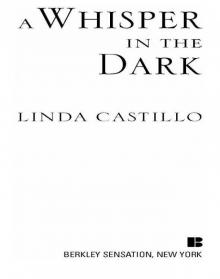 A Whisper in the Dark
A Whisper in the Dark After the Storm
After the Storm A Baby Before Dawn
A Baby Before Dawn Breaking Silence
Breaking Silence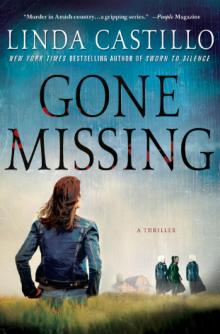 Gone Missing
Gone Missing Long Lost
Long Lost Midnight Run
Midnight Run The Dead Will Tell
The Dead Will Tell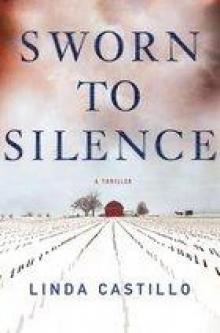 Sworn to Silence
Sworn to Silence Lay Down the Law
Lay Down the Law Safe Before Dawn
Safe Before Dawn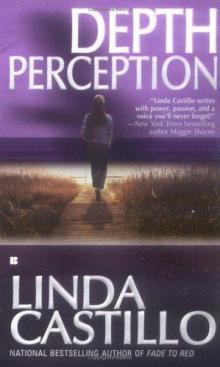 Depth Perception
Depth Perception Seeds of Deception
Seeds of Deception Operation: Midnight Guardian
Operation: Midnight Guardian The Perfect Victim
The Perfect Victim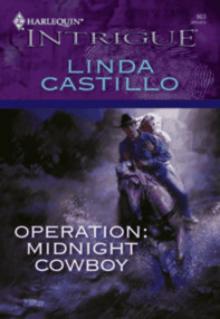 Operation: Midnight Tango
Operation: Midnight Tango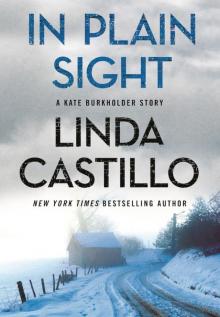 In Plain Sight (Kate Burkholder)
In Plain Sight (Kate Burkholder) Shamed
Shamed Fallen
Fallen Her Last Breath
Her Last Breath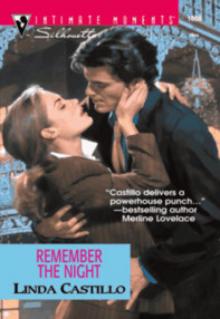 Remember the Night (Men in Blue)
Remember the Night (Men in Blue) Dead Reckoning
Dead Reckoning Cops and ... Lovers?
Cops and ... Lovers? The Pact
The Pact A Simple Murder
A Simple Murder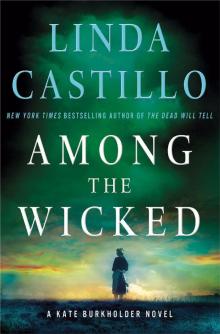 Among the Wicked
Among the Wicked In the Dead of Night
In the Dead of Night Just a Little Bit Dangerous
Just a Little Bit Dangerous The Phoenix Encounter
The Phoenix Encounter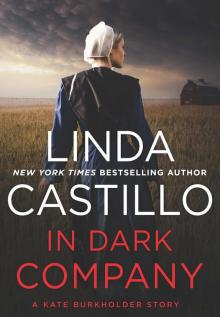 In Dark Company
In Dark Company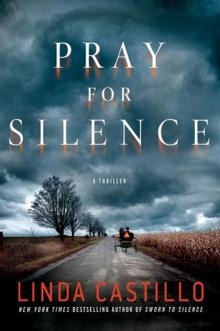 Pray for Silence
Pray for Silence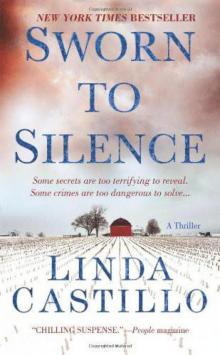 Kate Burkholder 01-Sworn to Silence
Kate Burkholder 01-Sworn to Silence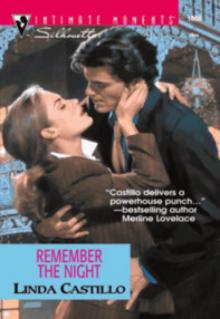 Remember the Night
Remember the Night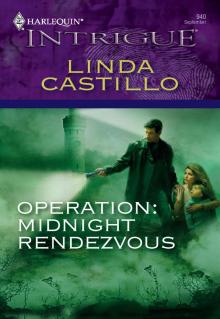 Operation: Midnight Rendezvous
Operation: Midnight Rendezvous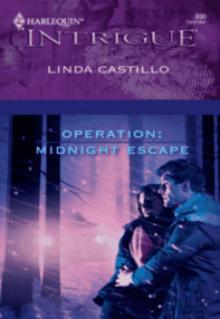 Operation: Midnight Escape
Operation: Midnight Escape The Dead Will Tell: A Kate Burkholder Novel
The Dead Will Tell: A Kate Burkholder Novel Seeds of Deception: A Kate Burkholder Short Story
Seeds of Deception: A Kate Burkholder Short Story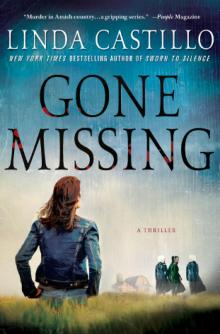 Gone Missing (Kate Burkholder 4) kb-4
Gone Missing (Kate Burkholder 4) kb-4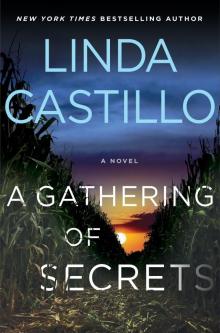 A Gathering of Secrets
A Gathering of Secrets Seeds of Deception: A Kate Burkholder Short Story (Kindle Single)
Seeds of Deception: A Kate Burkholder Short Story (Kindle Single)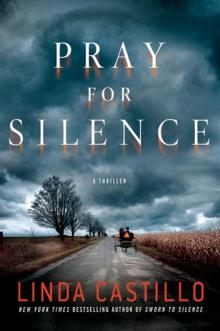 Pray for Silence kb-2
Pray for Silence kb-2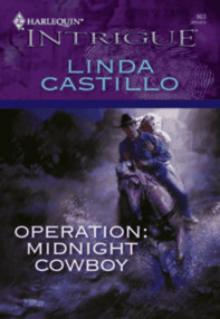 Operation: Midnight Cowboy
Operation: Midnight Cowboy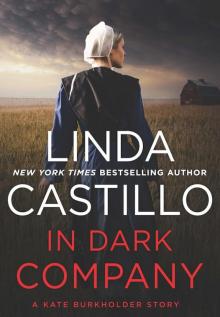 In Dark Company_A Kate Burkholder Short Mystery
In Dark Company_A Kate Burkholder Short Mystery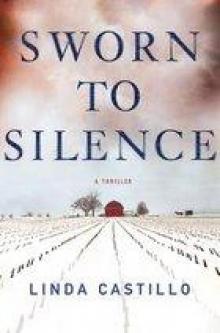 Sworn to Silence kb-1
Sworn to Silence kb-1 Her Last Breath: A Kate Burkholder Novel
Her Last Breath: A Kate Burkholder Novel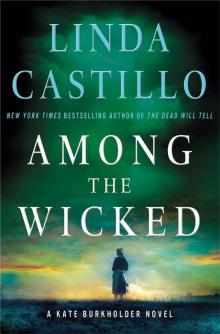 Among the Wicked: A Kate Burkholder Novel
Among the Wicked: A Kate Burkholder Novel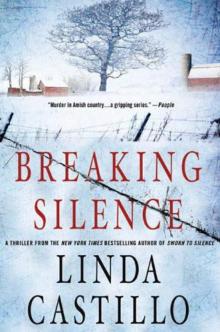 Breaking Silence kb-3
Breaking Silence kb-3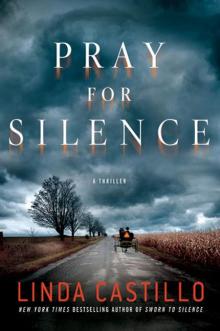 Kate Burkholder 2 - Pray for Silence
Kate Burkholder 2 - Pray for Silence Long Lost: A Kate Burkholder Short Story
Long Lost: A Kate Burkholder Short Story